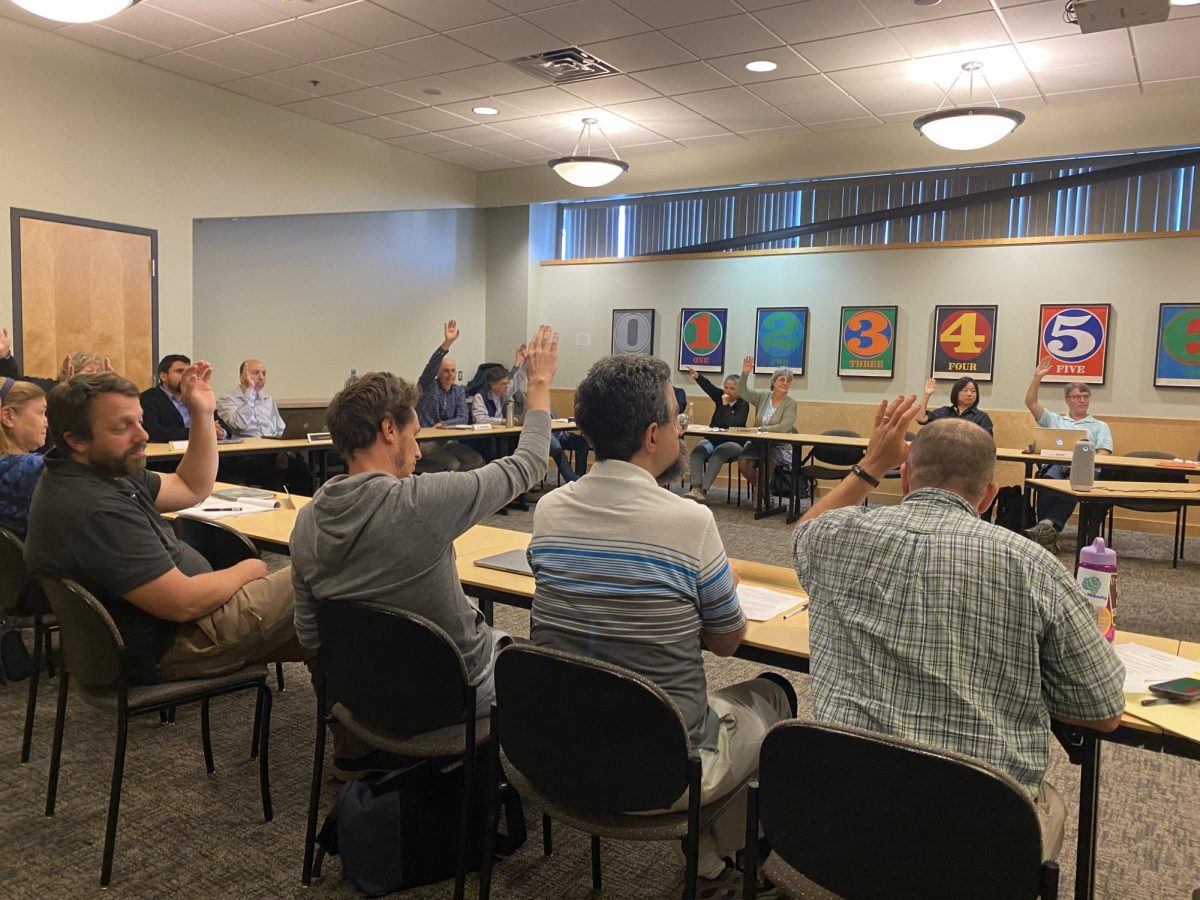Students, Staff and Faculty for Equality Training is a program available at UW Oshkosh that helps make this campus more safe and understanding of the LGBTQ community.
With the ever-growing LGBTQ community on the UWO campus, S.A.F.E. Training is something each person at UWO should consider taking part in.
Through this three-hour training, students and faculty learn about the community and how to become a better ally.
“The focus of this training has always been to teach knowledge about the LGBTQ community and skills to enable people both outside and inside the community to be better allies to individuals in the LGBTQ community,” Director of the LGBTQ Resource Center Liz Cannon said.
Cannon said this program has been at UWO since the early 1980s, and the various activities presented in the training have changed over the years.
“When I first came to campus in 1997, the focus was on identity development for gay and lesbian individuals, homophobia and the coming out process,” Cannon said. “Over the past 19 years, I have seen and helped the training evolve several times as the queer community itself has acknowledged our own diversity and as more up-to-date activities have been developed.”
When someone thinks of S.A.F.E. Training, their first thought may be that they will learn solely about the gay, lesbian, bisexual and transgender identities. However, the training covers a wide variety of identities, including intersex, asexual, demisexual, pansexual and others.
Cannon said the training currently gives an “overview of the levels of allyship” and has activities that teach participants current LGBTQIA+ terminology and bring awareness to messages we are taught that influence understanding of the queer community.
According to Cannon here is also an “empathy activity on the coming out process, and a student panel where LGBTQIA+ students answer questions about their experiences.”
S.A.F.E. Training covers a wide variety of identities and terms under the LGBTQIA+ umbrella, giving participants a well-rounded introduction to topics.
UWO senior Kaitlyn Albrecht has recently gone through S.A.F.E. Training as a class requirement and said she felt going through all of the different terms was the most beneficial.
“The definitions stood out the most to me because we took the most time on it,” Albrecht said. “There’s so many [terms] that you don’t even realize exist until you go over them.”
Albrecht said she was glad she was required to go through S.A.F.E. Training because she learned about identities that she didn’t know existed.
While some faculty and students are required to be S.A.F.E. trained, it is not an overarching requirement for campus, and both Albrecht and Cannon said they feel this requirement should be put in place across campus, or at least strongly considered by all.
“Anyone who is dedicated to serving all of our students should increase their knowledge of the diverse identities that our students have, including LGBTQIA+ identities,” Cannon said. “Many student affairs departments require their staff to be trained, luckily too many to list, and in [some cases] the entire building requires staff to be trained.”
Currently, any student that is a community advisor, or community service officer, or part of the College of Education and Human Services or College of Nursing is required to go through S.A.F.E. Training.
“The overarching goal of S.A.F.E Training is to create an inclusive and welcoming campus climate for our LGBTQIA+ students and staff,” Cannon said. “This climate extends to the classrooms, the residence halls, all offices on campus and on the campus grounds themselves.”
A more welcoming and positive environment on campus will allow for a overall better experience at UWO for every student.
While it may seem little, seeing a purple S.A.F.E. triangle can be overwhelmingly reassuring while walking through academic halls or residence halls.
Those triangles let you know that within the confines of that building you are safe. Those people took the time to get trained and to gain the knowledge to better support and understand you.
While it isn’t a requirement for everyone, consider being S.A.F.E. trained because you never know, someone close to you might appreciate it more than you may know.








